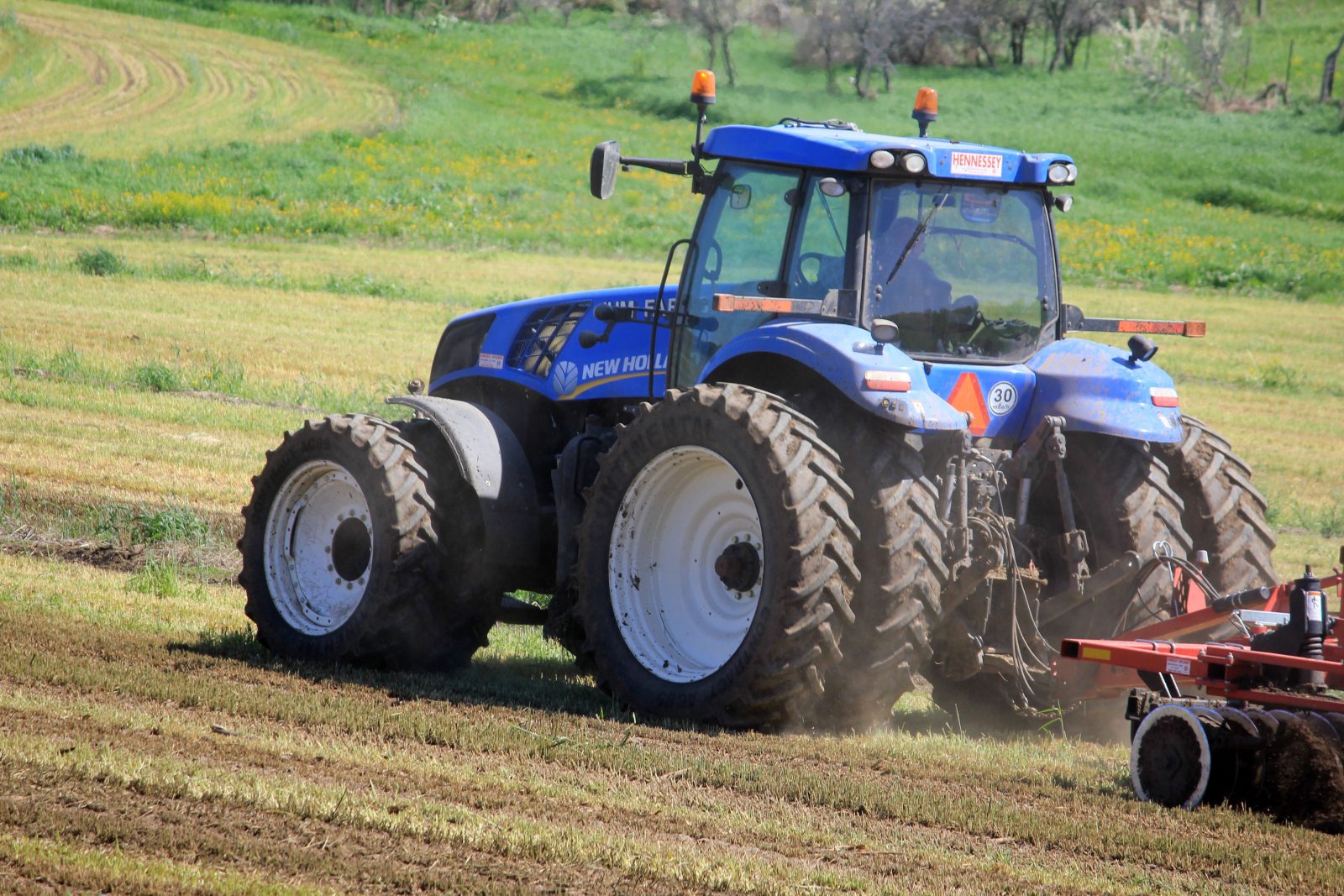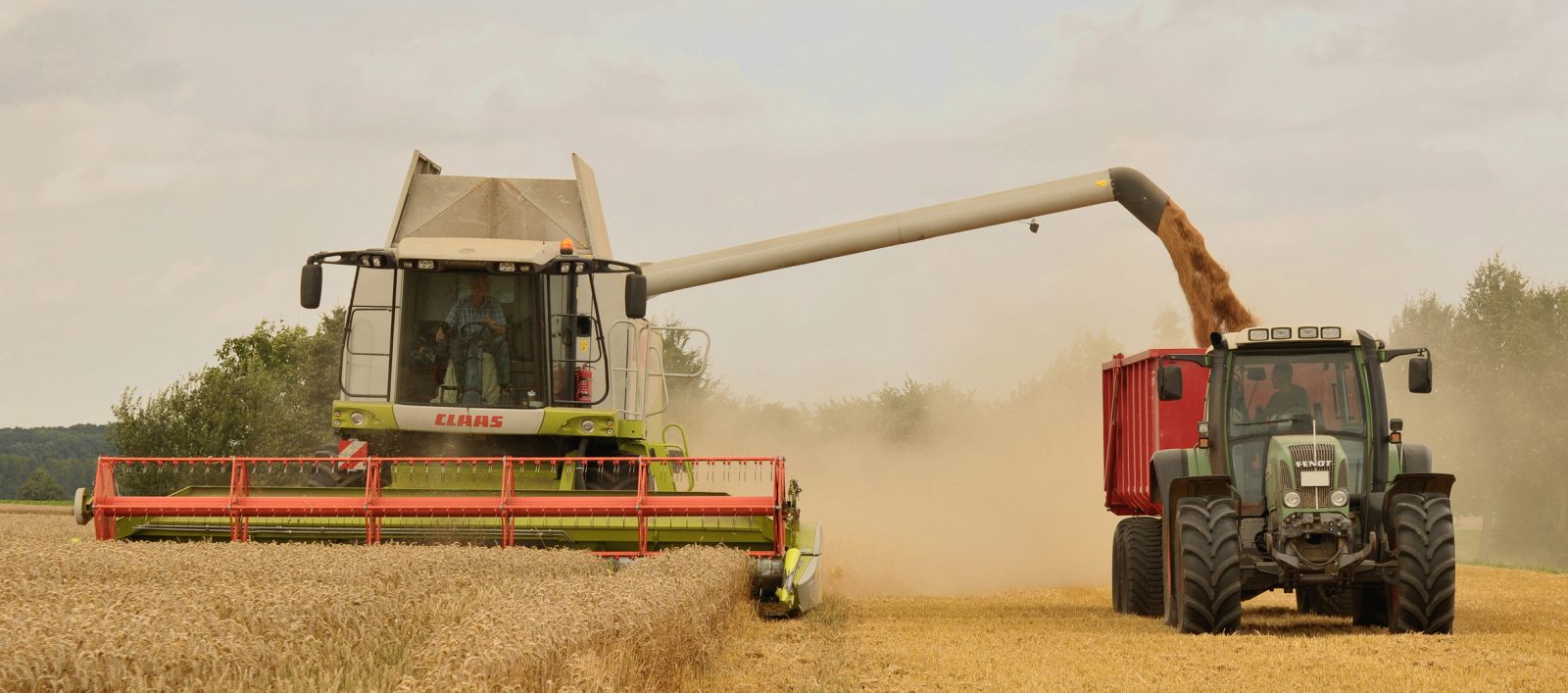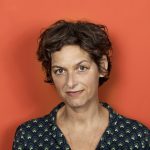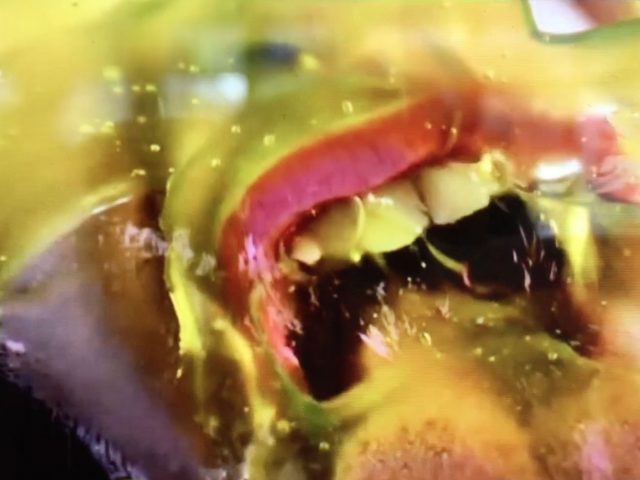Cracks appear in CBS’ brand after discarded research report

On a scale of 1 to 10, the CBS brand has been compromised to a level 5, says brand experts Mads Mordhorst, CBS, and Nikolaj Stagis, Stagis A/S. Read President Per Holten-Andersen’s assessment of the case involving an agricultural report and a serious breach of good research practice.
A much-talked about and strongly criticized agricultural report by a CBS researcher casts a long shadow over the university’s brand. On a scale of 1 to 10, where 10 is the most damaging, CBS comes in at 5-6. “It’s really important that CBS makes an effort to avoid another case like this. Should it happen again in the near future, the CBS brand could face a crisis of category 9 proportions,” says CBS brand expert.
According to Mads Mordhorst, Associate Professor, Department of Management, Politics and Philosophy at CBS, “management has failed to put the matter to rest. They simply have not followed the basic rules of crisis communication,” he says. “And what’s even more worrying is that it’s affecting CBS’ new strategy of doing even more business in society and business with society. It’s pushing CBS away from its optimal starting point.”
“CBS has been hit where it hurts the most. At the core – in the heart. Research and teaching are core businesses. The crown jewels, if you will. It’s bad enough that you can’t trust CBS. But it’s even worse that CBS can be bought. This goes against every definition of good research practice,” says Nikolaj Stagis, Director of Strategy and Founder at Stagis A/S.
He is a member of the international branding think tank, The Medinge Group and holds a master’s degree in Management Development from CBS.
High ethical standards are a researcher’s strongest currency.
Mads Mordhorst
CBS’ President, Per Holten-Andersen, on the other hand, believes that even if the case was detrimental to CBS, it may also have a positive outcome. Especially if the university shows that it has learnt from the experience and acts accordingly.
But how can a single report about agriculture generate this amount of negative press from the country’s largest media channels, including Danmarks Radio (DR), Altinget and Information? Month after month – for more than nine months now.
The answer appears to be simple. And then again, maybe it’s not.
Lobby organization was co-author
To understand what the case is all about we have to go back to July 2015 when CBS researcher, Troels Troelsen agreed to head up a report on ‘Framework conditions for Danish Agriculture and its competitiveness’.
The research was funded by Bæredygtigt Landbrug (Sustainable Agriculture), which contributed DKK 400,000 to the project. The money came from the Danish fund, Promilleafgiftsfonden, which gave DKK 1.5 million to Bæredygtigt Landbrug.
There is nothing wrong with that. Lots of research at universities is funded by companies and organizations. But, in this case, one very important principle was overlooked. The principle of unbiased and trustworthy research.
Researcher Troels Troelsen is not alone in writing the report. Farmer, Master of Science in Economics and Business Administration, and member of Bæredygtigt Landbrug, Torben Vagn Rasmussen, is also a proactive contributor. But he’s not cited as co-author of the report. That’s when alarm bells would start to ring at any university.

In early August 2016, an incomplete version of the report is published – without it being initially described as ‘preliminary’.
The conclusions of the report differ significantly from a report published by COWI in 2015. And from a report by Copenhagen University published back in 2012. Both reports show that environmental legislation plays a minor role in relation to the economic problems of the Danish agricultural sector.
By contrast, the agriculture report shows that the lack of profits has actively contributed to the escalation of debt, and that the agricultural sector is further threatened by new water legislation from June 2016. Based on the new report, several right-wing politicians express concern over the framework conditions of Danish agriculture.
Danmarks Naturfredningsforening (The Danish society for Nature Conservation) and researchers from Copenhagen University lambaste the report, calling it a useless piece of work. Botched and biased.
CBS’ Research Practice Committee, which operates independently from management, is asked by Academic Council and CBS’ management to investigate matters. The committee examines the case for more than three months and concludes in April 2017 that Troels Troelsen has committed a serious breach of good research practice for, among other things, failing to cite Torben Vagn Rasmussen as co-author.
Publishing of the preliminary report was timed
“It’s clear that this case has seriously damaged CBS’ brand. It was covered by the media and discussed in the research world – including our stakeholders who are our bread and butter,” says Mads Mordhorst. “The accusation is about Troels Troelsen doing consultancy and lobby work instead of research. Our legitimacy has been compromised. That’s why it has hit us so hard.”
Nikolaj Stagis believes that this case is particularly problematic because CBS has been trying to build a strong reputation as a university for years. “CBS is regarded as an A-grade university in Denmark and abroad, and is one of the most attractive universities for leading researchers. So it really hurts when your brand is tainted.”
CBS has been hit where it hurts the most. At the core - in the heart.
Nikolaj Stagis
CBS President Per Holten-Andersen agrees that the case has given CBS a ‘black mark’, but he also believes that in the long run it’s valuable for the institution to have had such a case.
“There may be some who think that I’m being a little too optimistic, but there are a lot of lessons to be learnt here. We have become aware that CBS needs to improve the way it does things. We must be aware of conflicts of interest. We often find ourselves in a gray area and, in this case, an employee at CBS crossed the line. There is also suspicion that the publication of the report was timed. With hindsight, we can see that it coincided with political debates in parliament, which is a ‘no go’!”
Did CBS do enough to correct matters?
CBS has begun to develop new guidelines for procedures for externally funded research, including good publishing practices of research results.
“Now that we’ve swallowed this bitter pill, CBS will come out of this wiser and stronger,” says Per Holten-Andersen.
Although CBS Research Practice Committee has strongly criticized the agricultural report and CBS management has introduced new guidelines, Nikolaj Stagis believes CBS could do more.
“The question is whether management has done a good enough job so that the changes are not only circulated internally, but also featured on national television. If the public is not made aware of the changes, nothing will change from a brand or reputation point of view,” says Nikolaj Stagis.
Mads Mordhorst fully agrees that the university’s external communication going forward is crucial to how much of the agricultural report’s mud will stick to the CBS brand.
“Contracts need to be in order as well as internal control systems. But you need to make sure that you don’t create a bureaucratic monster. It’s all about how we communicate in the future, and that we talk openly to our partners about the case. Then the whole affair might in fact benefit CBS,” says Mads Mordhorst.
“Scientists must keep in mind – and remind each other – about the standards we work towards. Almost all researchers have a high ethical standard at CBS, because we know it’s the strongest currency we have.”
Management made mistakes
Since August last year, the Troels Troelsen case has attracted much media attention. And Mads Mordhorst is not impressed by the management’s handling of the case. According to the brand expert, the management made a number of mistakes.
“They’ve not acted very professionally or cleverly in this case. The different statements issued at different intervals more than reflect this, just as different representatives have been used as spokespersons at different occasions. This has made the whole case unclear and created uncertainty. The basics of crisis communication have simply not been observed,” explains Mads Mordhorst.
Business is not just business. It’s not only about lining one’s own pocket. It’s about acting according to shared standards of responsibility, ethics and the norms of society.
Per Holten-Andersen
At the same time, it’s clearly more difficult for universities than for private companies to silence an issue. “At a university, management must maintain the arm’s-length principle in relation to their research staff. That’s not the case in private companies. If management at a university compromises the arm’s-length principle, and the researcher’s right to independent research, panic will break out across the organization,” explains Mads Mordhorst.
The never-ending story
The case went on for nine months. Everyone involved agrees that’s too long. President Per Holten-Andersen believes that management could have put a lid on things. But by doing so, they would have given rise to other issues.
“Staff management issues, for example. Does CBS treat their staff properly, especially when they are under external pressure? Everyone is innocent until proven guilty. There are lots of staff and legal aspects to this particular case. Just because an issue has attracted the attention of the press, we don’t go out and publicly criticize people, just to put a lid on things. If we did, I can imagine what the next headline would be: “CBS sacrifices researcher to save their brand!”
“Based on central criteria such as our approach to staff management; freedom of speech; independent research; and the arm’s-length principle, I believe we’ve handled the matter maybe not optimally, but correctly,” says Per Holten-Andersen.
But should the project have been stopped earlier? Mads Mordhorst is in no doubt that it should.
“CBS should have said that, purely on the grounds of the suspicion that the project has generated when it comes to independent research, we’re putting a stop to this report. We’ll find a way of dealing with the research-related problem. We’ll let the researcher continue his research, but it’s no longer part of a CBS contract.”
The case affects the university’s new strategy
Has the CBS brand suffered irreparable damage? Not yet, the brand experts and CBS’s President agree.
“Generally, most organizations can withstand one ‘bad case’. We all make mistakes – and we’re forgiven. So it’s considered a one-off. But if a similar case arises, people will say there’s a precedent and see it as a pattern. Something structurally wrong at CBS,” explains Mads Mordhorst.

According to Mads Mordhorst, it would have been unlikely for CBS never to confront a similar case. Simply because the university to a very large degree depends on externally financed research. However, the fact that the Troels Troelsen case has affected parts of CBS’s new strategy, is a real shame.
“CBS would like to attract even more partnerships and focus even more on business in society and business with society. The Troels Troelsen case makes this more difficult, pushing CBS away from its optimal starting point. In other words, if you have a strong brand, you don’t have to explain so much. But if your brand has become frayed around the edges, you do,” says Mads Mordhorst.
The old image resurfaces
For decades, CBS has struggled to distance itself from its former ‘School of Trade & Commerce’ heritage and made a dedicated effort to become recognized as a respected university. Nevertheless, the old tradesman is lurking just around the corner. A tradesman for whom business is only about money.
When asked whether CBS is in fact still a school of trade and commerce, Per Holten-Andersen says:
“Yes, we are. As an institution, we focus on economic activity and how to generate profit. In other words, on business. It’s no coincidence that ‘business’ forms part of our name. But business is not only business. It’s not only about lining one’s own pocket. It’s about acting according to shared standards of responsibility, ethics and the norms of society. CBS is among the business schools in the world with the best reputation when it comes to responsible business conduct.”
“That’s why this case hits hard. But if we only had clean, snow-white research publications without any issues, that would suggest that we control too much,” says Per Holten-Andersen.
Despite the fact that CBS became a university in 1973, Nikolaj Stagis still meets people who say, “Ohhh, the School of Trade & Commerce…,” when he refers to CBS.
“Even today, the old image and prejudices stick. Especially in some parts of academia and some professional clusters where ‘business school’ is still thought of as merchants rather than academics. And that’s probably where this case becomes even more acute for CBS. It becomes a School of Trade and Commerce again, and not a university with the right values and ethical principles. So CBS needs to be very aware that it still has to fight to maintain its image as a university.”
Contrary to CBS’ President, Nikolaj Stagis doesn’t believe that the CBS brand has rid itself of the tarnish yet.
“The University of Copenhagen’s image has suffered as a result of the Penkowa-case. What is clearly a smaller case by comparison has hits harder at CBS – simply because the institution, in the eyes of some people, is still in the process of establishing itself as a university.”
Nikolaj Stagis does not consider the Troels Troelsen case – and the verdict of ‘serious breach of good research practice’ – to be so critical that it will give the university problems in the future. Even so, he’s convinced that it will be another year or two before the case is forgotten. If another doesn’t come along to revive it, that is.
In April, CBS WIRE interviewed the Chairman of the Research Practice Committee, Søren Friis Hansen and the Dean of Research, Peter Møllgaard about the nature of the decision and what the consequences would be.
Watch both interviews here:
(Video: Mette Koors /CBS WIRE)
(Video: Anne M. Lykkegaard /CBS WIRE)

































































































































I have read, with great interest, the article about the non-publication of the Troels Troelsen report “Dansk Landbrugs Rammevilkår og Konkurrenceevne” and it’s perceived effect on the credibility of CBS as an institute.
There is a mistake in the article which leads to the, undoubtedly erroneous, comment on page two of the article “ But it is even worse that CBS can be bought”. The full financial support for this report came from the “Promilleafgiftsfond” and “Bæredygtigt Landbrug” had only one function which was an accountancy function. It is therefore misleading to state on page 4 “The research was funded by Bæredygtigt Landbrug (Sustainable Agriculture), which contributed DKK 400,000 to the project. The money came from the Danish fund, Promilleafgiftsfonden, which gave DKK 1.5 million to Bæredygtigt Landbrug.”
It is of paramount importance here to focus on the report from the CBS Praksisudvalg of the 28th March 2017 in which they clearly state on page 8 “Udvalget konkluderer på ovenstående baggrund, at den rapport om Dansk Landbrugs Rammevilkår og Konkurrenceevne, der blev præsenteret og offentliggjort den 2. august 2016, utvivlsomt udgør et videnskabeligt produkt.”
Furthermore in their “Samlet konklusion” Praksisudvalget state on page 21 “Udvalget finder derfor på det foreliggende grundlag ikke, at indklagede har gjort sig skyldig i videnskabelig uredelighed.
The journalistic coverage has concentrated on the formality of who were the contributing authors and not on the validity of the data in the report, with which the Praksisudvalg have no problem!
Of course one can argue that the lack of declaration of interests could lead to an incorrect conclusion based on the data. This is the very reason why we consider that the report deserves a “second opinion” as it was , in effect, slaughtered by ‘interested parties’ before it was given the reasonable and serious hearing it deserves. It makes me wonder why some were so interested in discrediting the project before it could be published.
I find it very strange that a report with a similar title, Dansk Landbrug og fødevareindustris konkurrenceevne og rammevilkår published by the University of Copenhagen in 2012 should reach totally different conclusions to Troels Troelsens report from 2016, only four years later!
For many years there has existed a “state of war” between traditional farming and the environmentalists which is absurd as both parties have a common interested in protecting the environment, not least the farming community as it is an integrated part of our capital value and sustainability. It is my hope that we can involve the environmental movement in reaching a second opinion on the report.
Troels Troelsens report indicates that Danish farming has paid a very heavy price to protect the environment based on theoretical calculations concerning protection of the environment. In fact the suggested costs on the farming community are so high that this could be a major contributing factor to why a large number of farmers are in financial difficulty and some have even been forced out of business.
The Swedes have, unlike the Danes, adopted a totally different approach to environmental protection and based it on factual results as opposed to the Danish theoretical models. This has meant less pollution, better farming yields and quality through higher protien, a win/win situation. In this age of FALSE NEWS we need to work with FACTS!
Due to the gravity of the situation I feel it imperative that the report is subject to a fair and reasonable second opinion, not only for the farming community but also for the environment as well as the Nation!